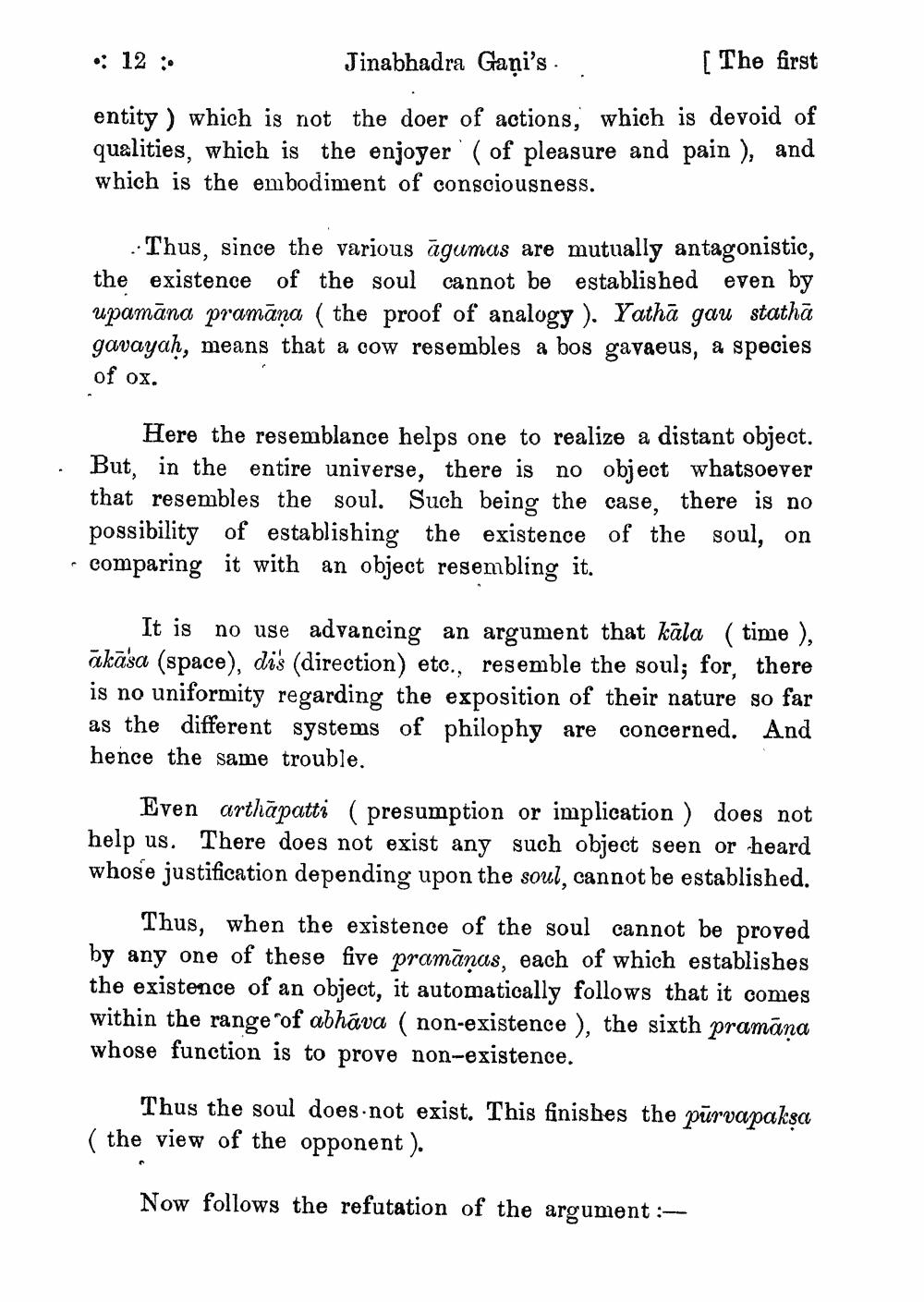________________
.: 12 ::
Jinabhadra Gaņi's ...
[The first
entity ) which is not the doer of actions, which is devoid of qualities, which is the enjoyer' ( of pleasure and pain ), and which is the embodiment of consciousness.
Thus, since the various āgumas are mutually antagonistic, the existence of the soul cannot be established even by upamāna pramāna ( the proof of analogy ). Yathā gau statha gavayah, means that a cow resembles a bos gavaeus, a species of ox.
Here the resemblance helps one to realize a distant object. But, in the entire universe, there is no object whatsoever that resembles the soul. Such being the case, there is no
possibility of establishing the existence of the soul, on - comparing it with an object resembling it.
It is no use advancing an argument that kāla ( time ), ākāsa (space), dis (direction) etc., resemble the soul; for, there is no uniformity regarding the exposition of their nature so far as the different systems of philophy are concerned. And hence the same trouble.
Even arthāpatti (presumption or implication ) does not help us. There does not exist any such object seen or heard whose justification depending upon the soul, cannot be established.
Thus, when the existence of the soul cannot be proved by any one of these five pramāṇas, each of which establishes the existence of an object, it automatically follows that it comes within the range of abháva ( non-existence ), the sixth pramana whose function is to prove non-existence.
Thus the soul does not exist. This finishes the pūrvapaksa ( the view of the opponent).
Now follows the refutation of the argument:




